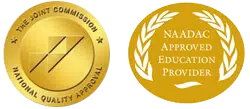Drug addiction is a complex disease that affects brain function and behavior. It is characterized by an inability to control drug use despite harmful consequences. According to the National Survey on Drug Use and Health, among people aged 12 or older, 20.4 million people aged 12 or older had a substance use disorder in 2019.
Scale of Addiction
While all drugs have the potential for abuse, some drugs are considered more addictive than others. Although there is no established measure for how addictive a drug is, researchers have measured addictiveness based on harm to self and others. Based on this framework, some of the most addictive drugs include alcohol, cocaine/crack, heroin, nicotine, and methamphetamine.
Researchers have also come up with scales to discuss how addictive some drugs are compared with one another. One such scale ranks drugs based on five factors: dependence, tolerance, intoxication, withdrawal, and reinforcement. These factors are described below.
Dependence
Dependence develops from using a drug over a period of time. It involves the difficulty of quitting, the number of users who become addicted, the rate of relapse, the significance users give to the drug, and the extent to which the drug continues to be used even if it is harmful.
Tolerance
Tolerance is the diminished response to a drug that occurs when it is used repeatedly. Consequently, a larger dose of the drug is needed to obtain the same effect before tolerance developed. For example, tolerance to nicotine builds up quickly, thus increasing the risk of addiction.
Intoxication
Intoxication describes a change in thinking, feeling, or behaving that results from the effects of a drug on the central nervous system. Nicotine is associated with mild stimulant side effects, so its scale of intoxication is relatively mild compared to other drugs such as alcohol or heroin.
Withdrawal
Withdrawal refers to the symptoms produced following the abrupt discontinuation or decrease in the consumption of a drug. Symptoms of withdrawal can range from unpleasant to life-threatening, and the duration of withdrawal symptoms can vary widely. Alcohol withdrawal, for example, can lead to seizures and irregular heartbeat in the most severe cases, which are sometimes fatal.
Reinforcement
Reinforcement measures the ability of the drug to make users consume it repeatedly, and the level of preference compared to other drugs. Heroin reports a high level of reinforcement because of the intense feeling of euphoria it produces in users.
Treatment for Addiction
Effective treatment for drug addiction is available. Treatment is designed to provide a safe environment for people to address problems associated with their use of substances, including medical problems related to alcohol or drug abuse. Generally, services may include medications, therapy, recovery coaching, and education. Services are most commonly delivered in an Outpatient Treatment setting. Outpatient programs are part-time programs that allow people to receive addiction treatment while accommodating work, school, or family life. The goal of outpatient treatment is to help maintain long-term recovery and improved quality of life.
If you or someone you love struggles with addiction, consider contacting Baystate Recovery Center to learn more about your options. At Baystate Recovery Center, our experienced team of medical professionals has a passion for helping those on the journey to recovery. Whether it’s drug or alcohol-based, evidence-based outpatient treatment is available to help manage addiction. Visit us online or over the phone at 855-887-6237 today for a confidential consultation with an addiction specialist.
Baystate Recovery Center, a clinically Infused 12-Step Treatment Center for Drug and Alcohol Addiction, was founded by two partners in addiction treatment services, John Checchi and Michael Wilson.



